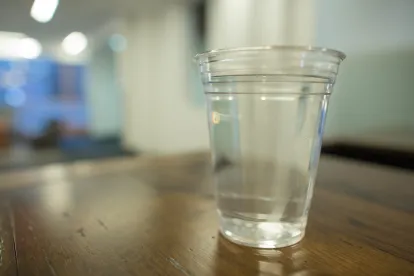On February 1, 2017, the Federal Trade Commission (“FTC”) and iSpring Water Systems, LLC (“iSpring”) reached a settlement regarding its false, misleading, and unsupported claims that its water filtration systems and parts are “Built in USA,” “Built in USA Legendary brand of water filter,” and “Proudly Built in the USA.”
In the FTC complaint against iSpring,[1] the FTC claimed that iSpring’s products either are wholly imported or made using a significant amount of inputs from overseas. In discussing the settlement, the Acting FTC Chairman Maureen Ohlhausen stated: “If a product is advertised or labeled as ‘made’ or ‘built’ in the USA, consumers rightly expect that to be the case when they part with their hard-earned money.” The vote to issue the complaint and accept the proposed consent order was 3-0.[2]
The stipulated final order prohibits iSpring from making unqualified “Made in USA” claims for any product unless it can demonstrate that the final assembly or processing of the product — and all significant processing — take place in the United States and that “all or virtually all” parts or components of the products are made and sourced within the United States. Under the final order, iSpring may not make country-of-origin representations about its products unless it possesses and relies upon a reasonable basis for such representations. iSpring is permitted to make a qualified “Made in USA” representation if it “clear[ly] and conspicuous[ly] discloses immediately adjacent to the representation the extent to which the [iSpring] product contains foreign parts, ingredients, and/or processing.”
Practice Take Away
Care should be taken whenever using the label “Made in the USA” or “Built in USA” or other country of origin claims concerning a product. One needs to ensure any country of origin claim is true and not misleading and that one has relied upon a reasonable basis for verifying the representation. In order for a claim to be accurate, the assembly and/or processing of the product must take place in the United States and “all or virtually all” parts or components of the product must be made and sourced in the United States. One should also consult applicable state law as well, especially since, for example, California law differs slightly from the FTC standard.[3]
[1] https://www.ftc.gov/system/files/documents/cases/170201ispringcmplt2_0.pdf.
[2] https://www.ftc.gov/system/files/documents/cases/170201ispringacco_0.pdf. (The Stipulated Order will be published in the Federal Register and subject to public comment for 30 days).
[3]Senate Bill 633, signed by California Governor Jerry Brown on Sept. 1, 2015, brought California’s stricter standard closer to the federal FTC standard and created a safe harbor for manufacturers. The amendment took effect on Jan. 1, 2016 and provides that merchandise may be labeled as “Made in the USA” if either: (1) all non-domestic parts constitute no more than five percent of the final wholesale value of the product; or (2) a manufacturer can show that a specific part could not be obtained within the U.S. and does not constitute more than ten percent of the final wholesale value.



 />i
/>i
